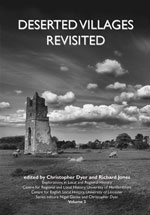March 2010
Centre for Urban History

Welcome to Urban History News - a monthly digest of news and information for the urban history community.
Centre for Urban History Open Day
19 March 2010
Are you interested in finding out more about our MAs in Urban History and European Urbanisation? Would you like to get an idea what it’s like being a postgraduate student? Do you want to meet current students and hear about their experiences?
If so, come along to our informal and friendly Open Day on 19 March in the Centre for Urban History at 3-5 Salisbury Road.
Centre for Urban History Lectureship
Applications are invited for a lectureship in European Planning History to undertake research, teaching, administration and other activities supporting the work of the Centre for Urban History and the School of Historical Studies. Applicants should have a doctorate, demonstrate potential to develop as internationally regarded researchers and teachers in the field of modern European Planning History. Applicants must have an active research interest in European urban and planning history in the twentieth century. An interest in urban conservation is desirable.
Further details can be found online at UoL Job Vacancies - search by reference AHL00051
![]() The Urban Space of the Elites
The Urban Space of the Elites
Urban History Review / Revue d'histoire urbaine
The Urban History Review / Revue d'histoire urbaine is calling for article proposals for a special issue on "The Urban Space of the Elites", scheduled for publication in the spring of 2011. This theme issue is part of a revival of studies on elites.
![]() Policing, surveillance and political transformations in the (former) Dutch and Belgium Empires
Policing, surveillance and political transformations in the (former) Dutch and Belgium Empires
16-17 September 2010 • Leiden, The Netherlands
This workshop focuses on the organization, methods and effects of policing, surveillance and incarceration in the (former) Dutch and Belgium empires, in the context of (post)colonial state formation, local political transformations and international security politics.
This is the third of a series of workshops that, over a period of two years, will look at aspects of policing in the European empires during the nineteenth and twentieth century. The conference will begin with a summary of the previous one in Paris.
![]() Blocked Arteries: Circulation and Congestion in History
Blocked Arteries: Circulation and Congestion in History
25-26 November 2010 • London, UK
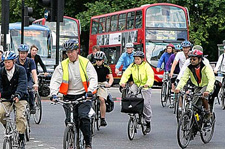 The aim of the conference is to examine the ways in which congestion has been, and continues to be, a problem as well as an inherent characteristic of the historical development of cities and regions worldwide, particularly in their relationship with commercial, financial, industrial, tourist and other networks. The conference also aims to promote an exchange across disciplines and engage with current policy debates.
The aim of the conference is to examine the ways in which congestion has been, and continues to be, a problem as well as an inherent characteristic of the historical development of cities and regions worldwide, particularly in their relationship with commercial, financial, industrial, tourist and other networks. The conference also aims to promote an exchange across disciplines and engage with current policy debates.
Proposals are invited relating to any historical period and geographical area examining congestion in its broadest sense and/or focusing on one of its multiple dimensions.
![]() Encounters of Sea and Land
Encounters of Sea and Land
28 June - 02 July 2011 • Turku, Finland
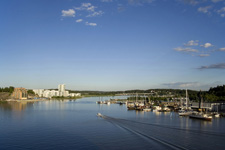 The European Society for Environmental History is pleased to invite proposals for sessions, papers and posters for its sixth international conference, taking place in Turku, Finland. Inspired by Turku's surroundings, which include Europe's largest archipelago, the main theme of the meeting is "Encounters of Sea and Land". The conference covers all periods and all areas of the globe. In keeping with a cherished tradition of the field, the conference is open to scholars from all disciplines and backgrounds.
The European Society for Environmental History is pleased to invite proposals for sessions, papers and posters for its sixth international conference, taking place in Turku, Finland. Inspired by Turku's surroundings, which include Europe's largest archipelago, the main theme of the meeting is "Encounters of Sea and Land". The conference covers all periods and all areas of the globe. In keeping with a cherished tradition of the field, the conference is open to scholars from all disciplines and backgrounds.
Submissions from graduate students are encouraged. The conference language is English.
EMUA City and Country Research Group
The East Midlands Universities are hosting a cross-disciplinary lecture series that is attracting a lot of attention. The lecture series organised by the EMUA City and Country Research Group focuses on the city and country and the changing relations between them in theoretical discourse and with reference to specific areas of expertise in the institutions. The first lectures were hugely successful attracting large audiences from both within and outside the academic world.
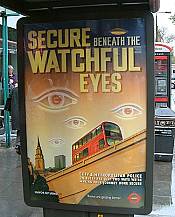 Surveillance and the Street
Surveillance and the Street
19 March 2010 • Bath, UK
This study day is part of the Street life and street culture: Between Early Modern Europe and the present network, funded by the AHRC as part of the Beyond Text project. This study day considers themes to do with surveillance and technology as they impinge upon and inform the public space of the street.
The Street life and street culture network has set out to build an international team of scholars with shared research interests in the interdisciplinary study of urban culture; in particular the relationship between the built environment and the social fabric of contemporary and Early Modern cities. By entering into a dynamic discourse with specialists from non-historical disciplines, we are pursuing the potential for "experiential" studies of street life, in a two-way discussion linking the historic past to the present.
From Space to Place: the Spatial Dimension in History of Western Europe
16-17 April 2010 • London, UK
This conference will explore the so-called 'spatial turn in history' discussed among historians for the last decade or so and inspired by earlier anthropological ideas and the interdisciplinary approach by sociologists, especially geographers. It challenges the idea of place or space in history as an unreflected essentialist category linked to tradition and immutability. Instead, space as place is shown to be socially and culturally constructed, mediated and contested. Organised into three separate but interlinking topics (social space, workplace and intimate space) papers will investigate how specific spaces in the past not only evoked but conveyed political, social, cultural and symbolic meaning and conversely how particular spaces/places influenced this meaning.
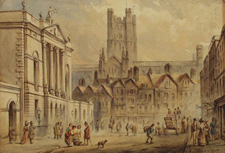 More Than a Spa Resort? The Urban Experience in Bath since the Reformation
More Than a Spa Resort? The Urban Experience in Bath since the Reformation
24 April 2010 • Bath, UK
Much historiography on the city of Bath focuses on the city as a spa resort and the personalities involved in its development, but little has been written on the residential population and links between them and the visitors. The relationship between Bath and the rest of country also needs to be addressed. Was the city a trend follower or a trend setter? How did Bath stand in relation to London and other main towns? To explore these issues, Bath Spa University is hosting an international symposium at the Bath Royal Literary & Scientific Institution, Queen Square, Bath.
URBAN HISTORY GROUP ANNUAL CONFERENCE
Transgressive Cities:
Practices and Place
25-26 March 2010 • Durham, UK
Online Registration is now open through the Economic History Society. (Late booking fee now applies)
Centre for Urban History
Urban History Past & Future
03 July 2010
As part of our 25th anniversary celebrations CUH is holding a conference on 'Urban History Past and Future' at Leicester on Saturday 03 July 2010. Speakers confirmed include Peter Borsay, Peter Clark, Michèle Dagenais, Martin Daunton, Helen Meller and Richard Rodger, with more to be added.
This promises to be a unique and exciting day for urban historians and all are cordially welcome to attend.
CUH website switch over...
In compliance with the corporate University of Leicester website, the Centre for Urban History website is moving to a new server. The switch over to www2.le.ac.uk will take place in the next few weeks. There will be some rearrangement of sections but redirects will be in place.
CUH is one of the first non-science departmental sites to be ready for the switch over and we hope to be able to put some of the features of the new system to good use!
30 to 20-year rule...
The UK Government response to the 30-year Rule on access to public records is now available - download pdf
upcoming events...
06 March
Space, Place and Environment
Kolding, Denmark
18 March
Richard Dennis inaugural lecture
London, UK
19 March
Surveillance and the Street
Bath, UK
25-26 March
URBAN HISTORY GROUP ANNUAL CONFERENCE
Durham, UK
26–28 March
Economic History Society Annual Conference
Durham, UK
27 March
Religion and Society symposium
Edinburgh, UK
30 March - 1 April
Social History Society Annual Conference
Glasgow, UK
13-16 April
8th European Social Science History Conference
Ghent, Belgium
16-17 April
From Space to Place
London, UK
17 April
Famine, Diet and Nutrition
St Albans, UK
23-24 April
The Politics of Architectural Destruction
Celbridge, County Kildare, Ireland
24 April
Bad Women
Worcester, UK
24 April
More than a Spa Resort?
Bath, UK
approaching deadlines...
15 March
Immigration and Urban History 
30 April
Revisiting New Towns (registration)
The Urban Space of the Elites 
CUH seminars...
CUH Seminar Series 2009-10:
2009-10 marks the 25th Anniversary Year at CUH.
other seminar series...
City and Country Research Group
East Midlands Universities
Historical Perspectives: Work in Progress Seminars
Glasgow, UK
Birkbeck Urban Studies Group
London, UK
IHR Sport & Leisure History
London, UK
Chicago History Museum
Chicago, USA
recent publication...
Deserted Villages Revisited
edited by Christopher Dyer and Richard Jones of Centre for English Local History
Deadline for next issue:
01 April 2010
Back copies of UHN remain on-line for 6 months. Earlier issues are available on request.
Articles for the newsletter and diary should be emailed to uhn@le.ac.uk. It is requested that items for the newsletter are submitted in English.
To subscribe to UHN send an email marked 'Subscribe UHN' in the subject line.
To unsubscribe please send an email marked in the subject line 'Newsletter unsubscribe'.
